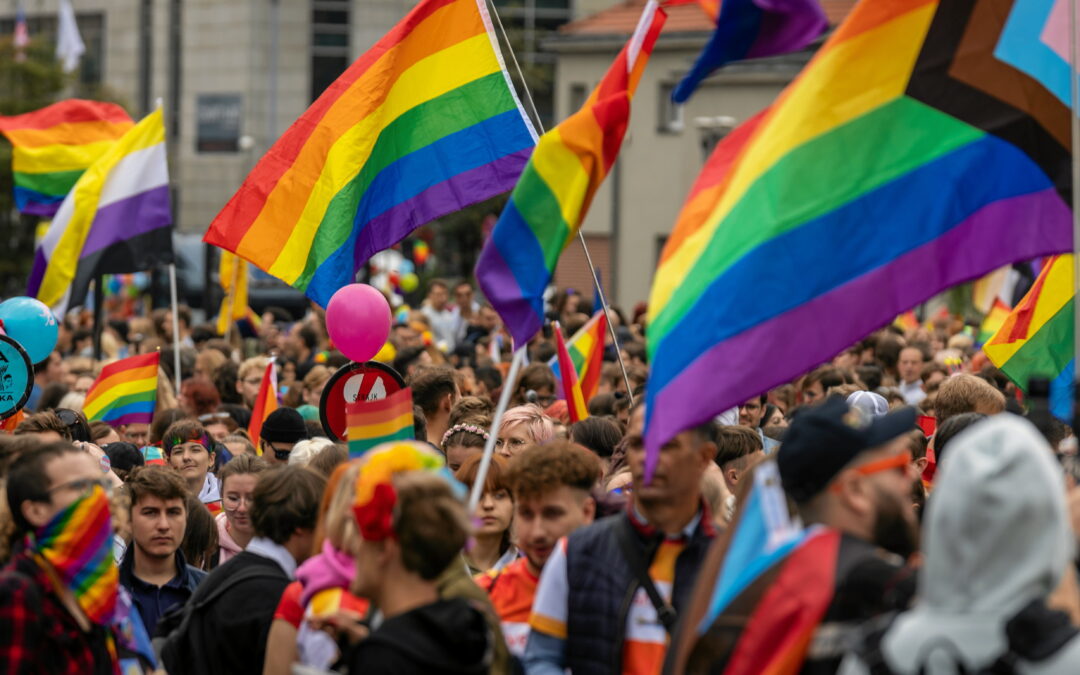Thousands of people have taken part in the annual LGBT equality marches in the cities of Katowice and Lublin. The former event was held jointly with the Ukrainian city of Odesa as a show of solidarity with those unable to celebrate pride in their wartorn homeland.
In Lublin, the march took place without the violent nationalist opposition seen in previous years. In Katowice, an attempt by the mayor to ban a religious protest against the parade on public safety grounds was overturned in court, but the event passed peacefully.
#MarszRownosci #Katowice #LGBT #Slask pic.twitter.com/8Cw7jofH9R
— MarcinKamiński KAMYK 💚 (@marcinkamyk) September 3, 2022
Katowice’s equality parade was the sixth to take place in the city. Around 4,000 people took part, reports broadcaster TVN. “There are more and more of us,” said organiser Przemysław Walas.
He noted that the event was “an opportunity for the community to feel safe and comfortable” but also to remind “our city, the region, and all of Poland that we are here, that we will not disappear because someone has a problem accepting that the world is not black and white”.
Recent years have seen a sustained campaign, led by the ruling party and Catholic church, against what they call “LGBT ideology”. As a result. Poland has for the last three years been ranked as the EU’s worst country for LGBT people.
Walas also noted that Saturday’s event was intended to show solidarity with the people of Ukraine, including its LGBT community. The organisers invited representatives from Odesa Pride to take part. Similarly, Warsaw’s equality parade was this year held jointly with Kyiv’s.
Ahead of the march, Katowice’s mayor had banned Fundacja Pro, a conservative group known for anti-LGBT protests, from organising a public rosary prayer on the route. He argued it could cause a threat to “safety and public order”, reports Gazeta Wyborcza.
However, a court overturned that decision, rejecting the argument that a gathering of five to ten people could endanger public safety. The prayer therefore went ahead, with participants holding up banners showing, among other things, claims that homosexuality is linked to paedophilia, reports Dziennik Zachodni.
Meanwhile in Lublin, almost 1,000 people took part in the city’s fourth equality parade on Saturday, reports Dziennik Wschodni.
The event passed peacefully, in contrast to the first two years it was held – in 2018 and 2019 – when nationalists protesters clashed with police and one couple were convicted for bringing homemade explosives.
This year again saw a heavy police presence but, while there were some protests, they involved only a dozen or so people, notes TVN.
Bardzo dużo policji Marsz Równości Lublin #tolerancja #Lublin #LGBT pic.twitter.com/UUktdOvG1t
— A. Gmiterek-Zabłocka (@AnnaZabl) September 3, 2022
“There is an absolutely huge change compared to previous years,” said one participant in the parade. “We are extremely happy that our marches have changed our reality.”
She argued that the ruling party’s anti-LGBT campaign has actually had the opposite effect to that intended. It has helped people “find out that this is not some imaginary gay who spreads diseases, but actually the person who we buy bread from in the morning, our neighbour, or our colleague at work”.
Main image credit: Grzegorz Celejewski / Agencja Wyborcza.pl

Daniel Tilles is editor-in-chief of Notes from Poland. He has written on Polish affairs for a wide range of publications, including Foreign Policy, POLITICO Europe, EUobserver and Dziennik Gazeta Prawna.




















